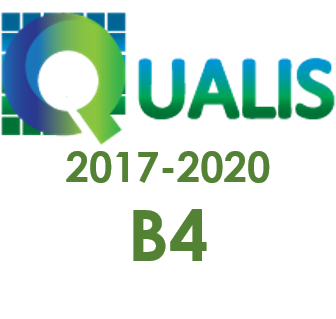DIFFICULTIES IN TRIGONOMETRIC LEARNING: reflections of basic education in higher education
DOI:
https://doi.org/10.22481/intermaths.v2i2.8529Keywords:
Trigonometria, Educação Básica, Ensino Superior, AprendizagemAbstract
This text aims to identify whether the difficulties presented by students, from courses in the Exact and Earth Sciences area of a university, in relation to the teaching of trigonometry contents, is a problem that comes from Basic Education and reflects on Higher Education. In order to meet the objective, a field research was carried out with 28 students enrolled in a discipline whose contents involved calculations belonging to one of the four courses in the aforementioned area. The main theoretical support used was the Ausubelian Theory. This research has a qualitative nature in which the instrument for data collection was a questionnaire with questions about the difficulty in relation to the topic, and for data analysis, content analysis was applied. The data show that the lack of use of different teaching resources in classes, in Basic Education, can be considered a factor that limits the learning of trigonometric approaches. The trigonometric contents that are seen during the learning phase do not interact with the subjects’ prior knowledge. Furthermore, they show that the trigonometric topics taught during Basic Education did not stimulate students’ curiosity, a fact that is also reflected in Higher Education.
Downloads
References
P. Abbot, Trigonometria. 2ª ed. São Paulo: Hemus, 2004.
D.P. Ausubel, A aprendizagem significativa: a teoria de David Ausubel. São Paulo, Moraes,1982.
D.P. Ausubel, Aquisição e retenção de conhecimentos: uma perspectiva cognitiva. Lisboa: Editora Plátano, 2003.
L. Bardin, Análise de conteúdo. São Paulo: Edições 70, 2011.
N.M.L. Costa, Funções seno e cosseno: uma sequência de ensino a partir dos contextos do “Mundo Experimental” e do computador. 1997. 174 f. Dissertação (Mestrado em Educação Matemática) - Universidade Católica de São Paulo, São Paulo: PUC, 1997.
R. Ghiglione, B. Matalon, O Inquérito: teoria e prática. Oeiras: Celta Editora, 2003.
I.A. Mendes, O uso da história no ensino da Matemática: reflexões teóricas e experiências. Belém: EDUEPA, 2001.
M.A. Moreira, O que é afinal aprendizagem significativa? Revista cultural La Laguna Espanha, 2012. Disponível em: http://moreira.if.ufrgs.br/oqueeafinal.pdf. Acesso em 09 jun. 2021.
C.S. Pereira, Aprendizagem em trigonometria no ensino médio: contribuições da teoria da aprendizagem significativa. São Paulo: Paco Editorial, 2012.
R.J. Richardson, Pesquisa social: métodos e técnicas. 4 ed. São Paulo: Atlas, 2017.
W.R. Valente, Uma história da matemática escolar no Brasil (1730-1930). 2ª ed. São Paulo: Livraria da Física, 2020.
Downloads
Published
Issue
Section
License
Copyright (c) 2021 INTERMATHS

This work is licensed under a Creative Commons Attribution 4.0 International License.
- Responsibility: The scientific content and the opinions expressed in the manuscript are the sole responsibility of the author(s).
- Copyrights: INTERMATHS.
- All content of Revista INTERMATHS/INTERMATHS journal is licensed under a Creative Commons - Atribuição 4.0 Internacional












